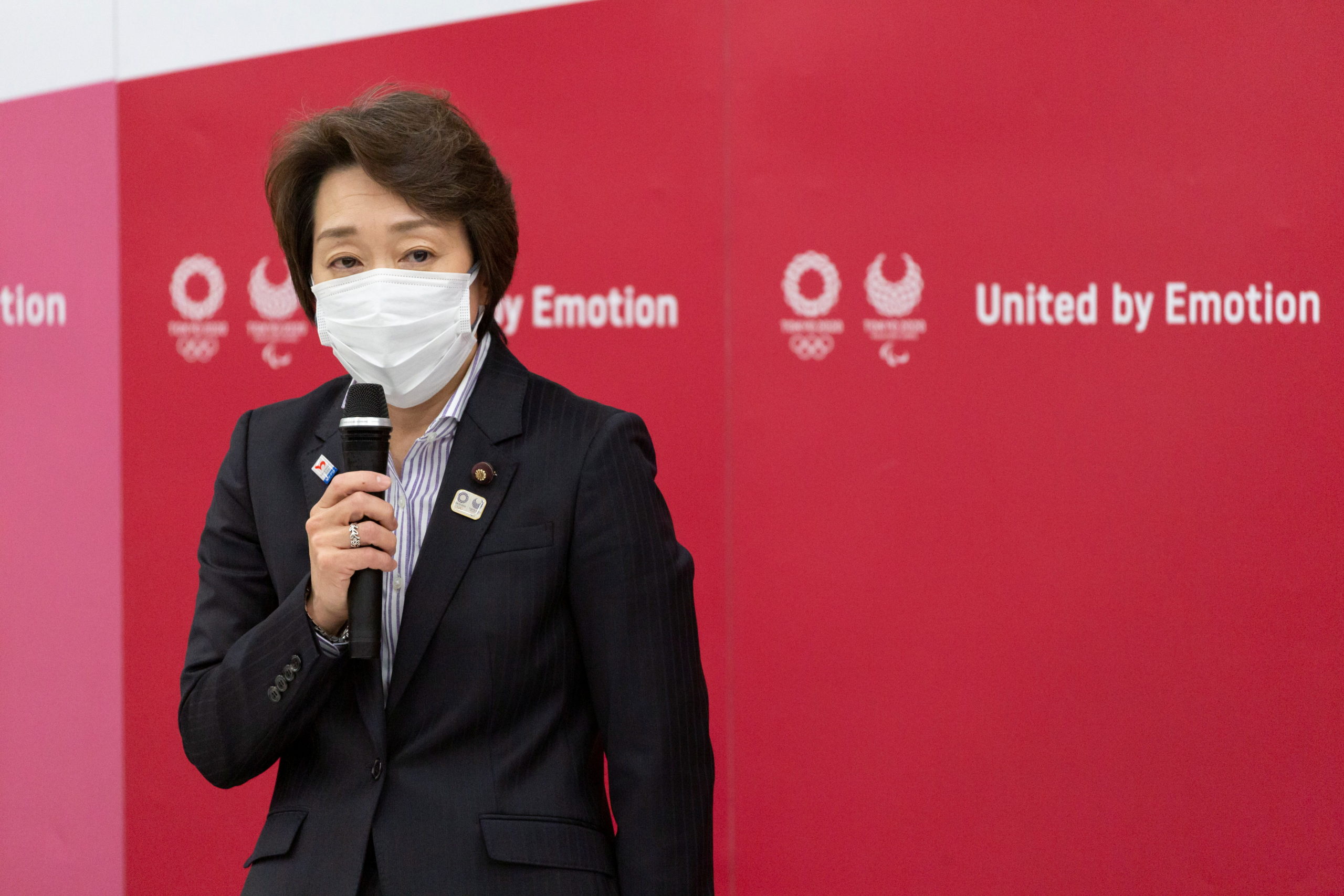
Seiko Hashimoto, president of the Tokyo 2020 Olympics Organising Committee, speaks during the Tokyo 2020 Executive Board meeting, in Tokyo, Japan February 18, 2021. Yuichi Yamazaki/Pool via REUTERS
Japan’s Olympic minister Seiko Hashimoto became Tokyo 2020’s new president on Thursday, capping an embarrassing sexism row with just over five months until the virus-postponed Games.
Hashimoto, a seven-time Olympian who competed in speed skating and as a sprint cyclist, was one of just two women in Japan’s cabinet before stepping down to take the key post.
She replaces 83-year-old Yoshiro Mori, who resigned after claiming that women speak too much in meetings, sparking outcry in Japan and abroad.
“I will spare no effort for the success of the Tokyo Games,” Hashimoto said after being formally appointed, calling virus countermeasures “the top priority.”
She pledged to work to “ensure that the public both domestically and abroad feel this is going to be a safe and secure Olympic Games.”
Hashimoto submitted her resignation earlier Thursday to Prime Minister Yoshihide Suga, who she said had offered “kind words,” and asked her to “give all my strength to create a Tokyo Games that will be embraced by the Japanese people.”
A committee with a 50-50 gender split was formed to find a successor to Mori last week, with Hashimoto immediately among the leading candidates.
Tokyo 2020’s executive board met earlier Thursday to hear the results of the committee’s deliberations with 2020 vice-president Toshiaki Endo saying a quick decision was needed.
Mori’s departure was “enormously damaging from the viewpoint of preparation five months before the Games,” Endo said.
“We need to make a decision on the new president as soon as possible, though it is necessary that it goes through appropriate procedures, given the issue has attracted attention at home and abroad,” he added.
Uphill struggle for public support
Hashimoto, 56, appeared at both winter and summer Games and was also serving as minister for gender equality and women’s empowerment.
But she has been involved in controversy, facing a sexual harassment scandal in 2014 after photos emerged of her hugging and kissing a male figure skater over 20 years her junior.
The skater said he did not think he had been harassed by the married Hashimoto, who apologized for any “misunderstanding” caused by the photos.
Keiko Kojima, an essayist and commentator on gender issues in Japan, said Hashimoto would need to address that controversy head-on.
“If she properly addresses that and her thoughts on gender equality as she takes up the post, then I think it will be fine,” Kojima told AFP.
Hashimoto’s nomination comes after Mori’s attempt to handpick his successor — he proposed an 84-year-old ex-footballer — was nixed following public criticism.
Kojima said the process that resulted in Hashimoto’s selection had been transparent and “worthy of praise”.
The former minister had reportedly been reluctant to take on the job, and she will face an uphill struggle to win over the public on the Games, which are due to open on July 23.
Polls show around 80 percent of people in Japan back either cancellation or further postponement.
Organizers have tried to quell the disquiet by releasing virus rulebooks — but doubts persist, with Tokyo and other regions currently under a Covid-19 state of emergency.
The first Olympic test event of 2021 has already been postponed because of tightened border restrictions under the measures.
“There are only five months to go, and putting on a safe and secure Games is going to be of utmost importance, with the understanding of the people of Japan,” Endo said earlier Thursday.
Ex-Tokyo 2020 chief Mori, a former prime minister, resigned after domestic and international outcry over remarks he made in early February to members of the Japanese Olympic Committee.
He apologized for the sexist remarks while insisting he was repeating complaints made by others, but then dug a deeper hole when he explained that he “doesn’t speak to women much.”